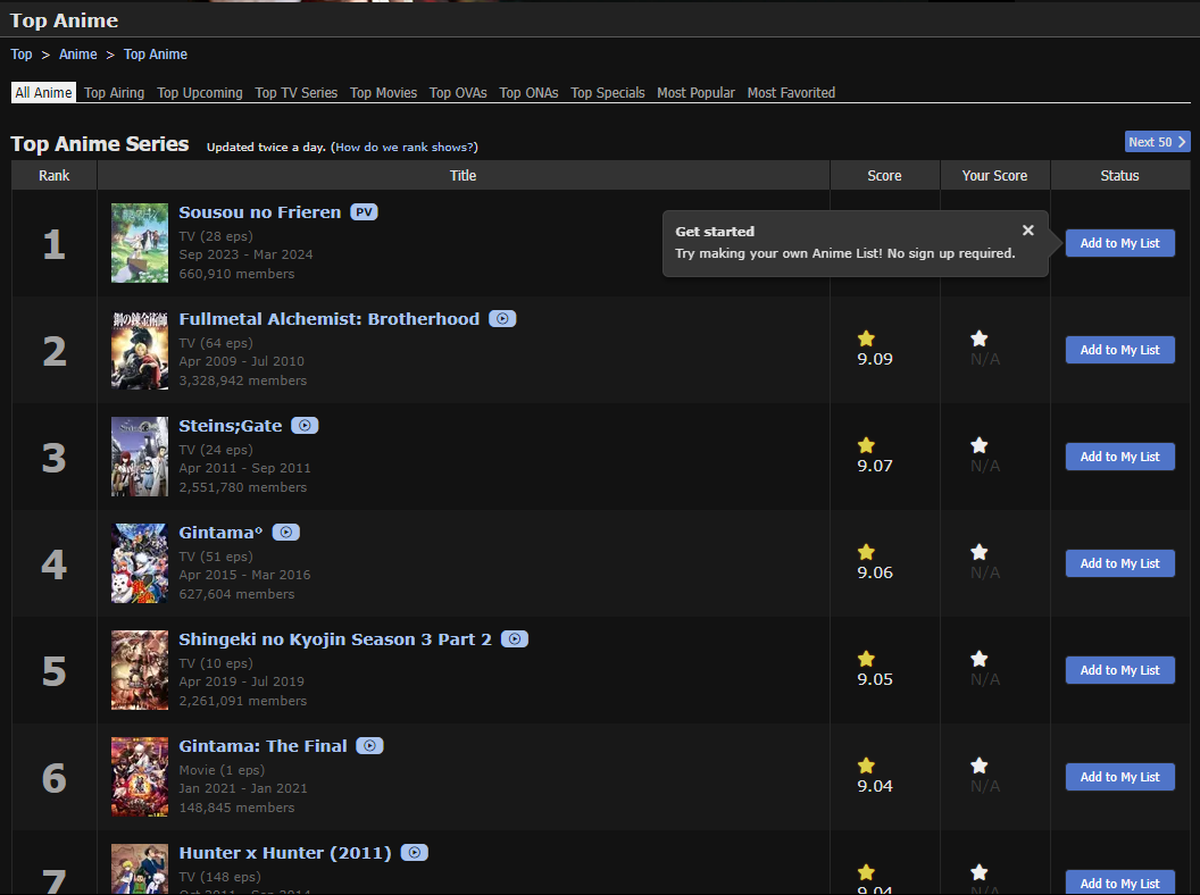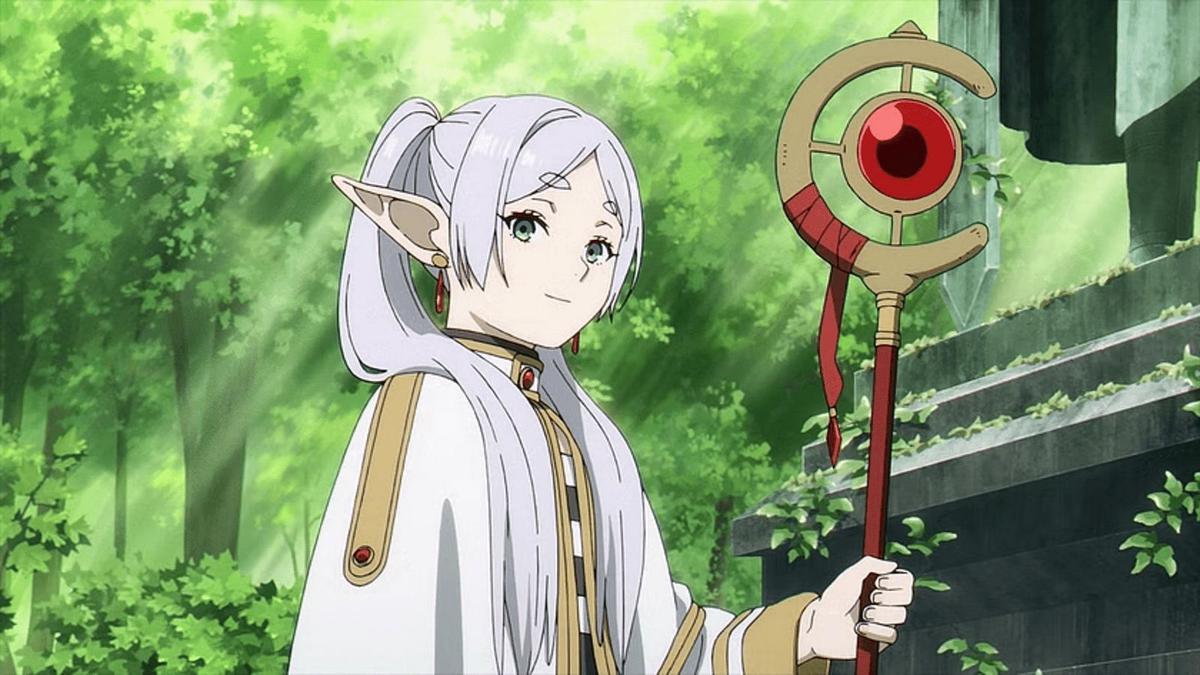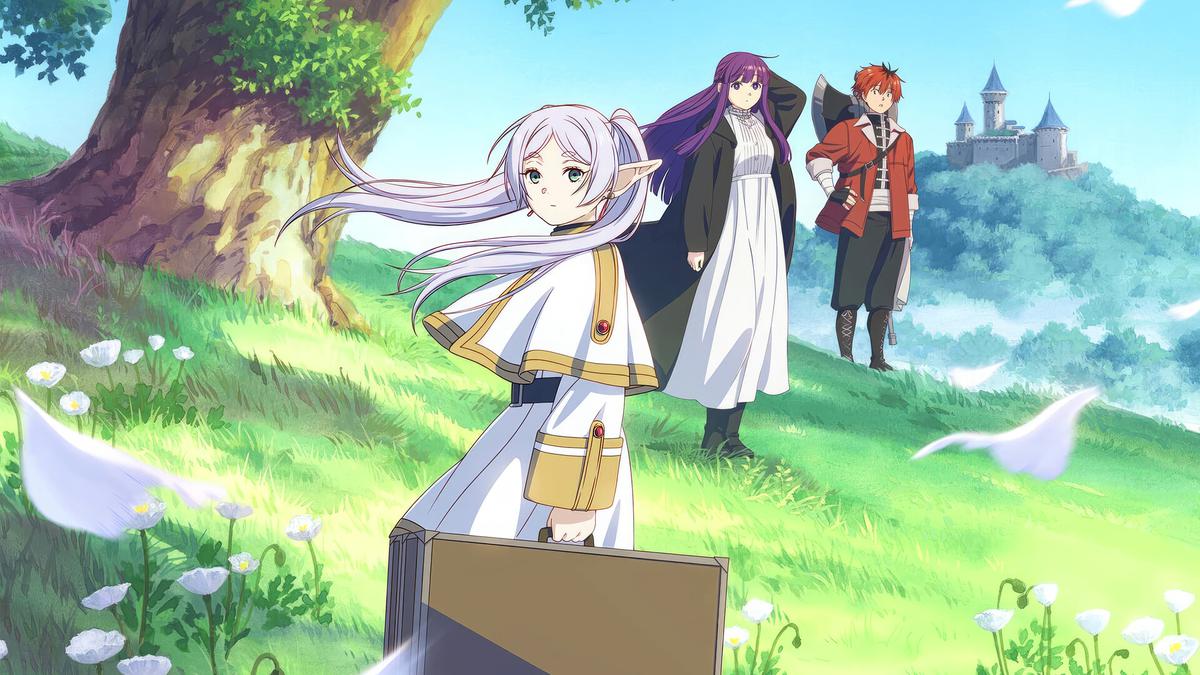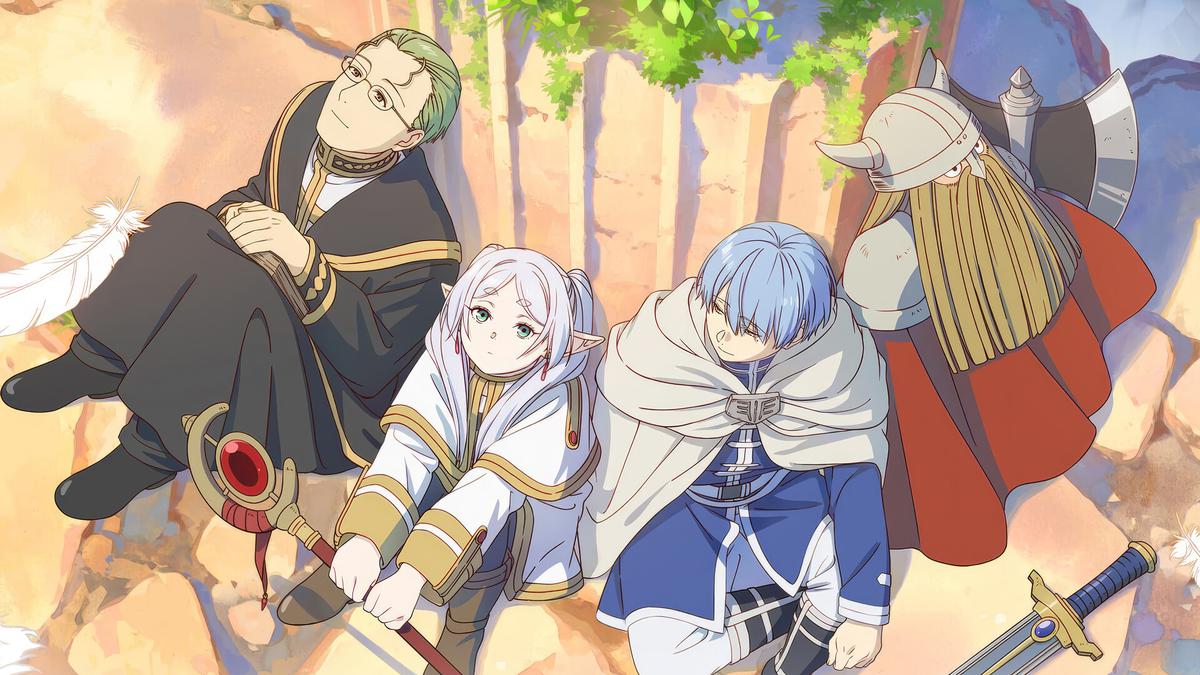[ad_1]

A screengrab from ‘Frieren: Beyond Journey’s End’
| Photo Credit: Studio Madhouse
For over seven decades, J.R.R. Tolkien’s masterwork has stood as the bedrock of the fantasy genre, shaping the landscapes of countless realms that followed. The towering legacy of The Lord of the Rings has cast a long shadow over the genre for ages, with few daring to challenge its sovereignty. A few months ago, whispers of a prophetic adversary spread amongst the fantasy community, as a Japanese throne had been usurped.
Dethroning the legacy
For the unversed, My Anime List is one of the world’s largest anime forums that incorporates a user-voting system to rank the all time greats, the anime equivalent to an IMDB essentially. For over a decade, the classic shounen anime, Fullmetal Alchemist: Brotherhood had enjoyed its comfortable reign at the top spot, undisturbed even by the likes of Attack on Titan or Steins Gate. That was until Studio Madhouse sliced the head off the anime regent with an unassuming fantasy tale that nobody could have seen coming. One that has since rocked the very foundations set in stone by Tolkien and his fantasy loyalists.

A screengrab of the My Anime List Top Anime of all time
| Photo Credit:
myanimelist.net
While the landscape of anime has witnessed a proliferation of fantasy titles in recent years, Kanehito Yamada’s Frieren: Beyond Journey’s End dares to carve its own path amidst the cacophony of familiar tropes and archetypes. At its heart, the series is a subtle rebuke to the pervasive trend of ‘isekai’ (“other-world”), a subgenre that has dominated the anime scene with its fantastical escapades and wish-fulfilment narratives. Unlike the typicalisekai protagonist, thrust into a new world with newfound powers and privileges, Frieren grapples with the weight of her past and the consequences of her choices.

Subverting immortality
At its core, Frieren presents a world reminiscent of Middle Earth. Elves, dwarves, demonic dark lords — the whole gang’s here, but they’re not just going through the motions of a Tolkienian re-enactment. Our titular elf protagonist isn’t just some distant, ethereal being sipping on ambrosia in the forests of Lothlorien, she’s grappling with existential dread like the rest of us mortals. While Tolkien’s masterpiece encapsulates the changing tides through the lens of hobbits and men, Frieren embarks on a similar journey through the eyes of the aloof titular elf.

Frieren the Slayer from ‘Frieren: Beyond Journey’s End’
| Photo Credit:
Studio Madhouse
In established high fantasy lore, the elves stand as paragons of grace and wisdom, their perception of time often distant and detached. Amazon Prime’s excursions on Middle Earth with The Rings of Power spin-off series attempted to humanise its elven protagonist, Galadriel, but fell short in more ways than one. Frieren breathes life into this immortality, and expands upon the crippling weight of centuries upon a soul. Unlike many fantasy works where the undying exhibit little acknowledgment of time’s passage or reduce it to a stoic, “Do not cite the deep magic to me witch, I was there when it was written,” Frieren digs deep into the psyche of its immortal protagonist. Through Frieren’s eyes, we witness the fleeting nature of human existence juxtaposed against the timeless perspective of the elves. As the elf forms bonds with her mortal companions, she confronts the pain of loss and the transient beauty of these moments of intimacy, challenging the notion of immortality as a blessing rather than a curse.

Embracing vulnerability
Central to the series is the theme of companionship, as Frieren journey’s across the land alongside her newfound allies, Fern and Stark. Through every village visited and every encounter faced, the trop learn and grow together, their bond deepening with each passing moment. Textbook Fellowship of the Ring or dungeon party, if you will. But while Aragorn may be brave and steadfast through his trials and Harry is bold and defiant in the face of danger, our ‘hero’ Stark, cries, whines and trembles with fear before striking down a massive dragon in the most glorious fashion. The anime embraces the fragility and imperfection of its characters, imbuing their actions with a sense of vulnerability. Perhaps most striking is the anime’s subversion of traditional power dynamics within the genre. Rather than relying on grand displays of power, Frieren emphasises restraint. The elven mage may wield some of the most tremendous magic in the entire realm, but she’d rather spam basic low-level spells to deal with a problem swiftly and spend her time adding insignificant grimoires to her collection.

Frieren, Fern and Stark from ‘Frieren: Beyond Journey’s End’
| Photo Credit:
Studio Madhouse
Finding meaning in the mundane
What truly sets Frieren apart however, is its unwavering focus on the ‘little’ moments, the quiet exchanges between characters that resonate with profound meaning. As much as I adore the Rohirrim flanking the sunkissed horizon as King Theoden leads his army towards the Battle of the Pelennor Fields, sometimes, all one could ever ask for is an extra pint for the Hobbits at the Prancing Pony or to be serenaded by Mr Tumnus’ flute while Lucy sips tea, just a while longer.
What has always made fantasy so effective is the escape. The escape to a world so preciously treasured that the mere thought of return to our horrid realities is a devastating punch to the gut. As Frodo Baggins and Sam Gamgee share their tearful final embrace on the shores of the Gray Havens, or as Harry Potter takes one last glimpse of Hogwarts as he boards the train home, or as the Pevensie siblings bid adieu to Narnia as they step through the wardrobe; as much as we’d love for the journey to continue, we must begrudgingly come to terms with the fateful adventure coming to a heartbreaking close. In those aching moments, we see reflections of our own farewells, yearning for just a few more moments of this solace. And it is through the selfsame longing for the little time beyond the end where Frieren truly begins her story. Beyond journey’s end.

Frieren and her original quest members from ‘Frieren: Beyond Journey’s End’
| Photo Credit:
Studio Madhouse
Through her touching journey, Frieren offers a meditation on the human condition unlike any other, reminding us of the fragility of life and the importance of cherishing every moment. Unlike the bombast of Tolkien’s Middle-earth, the whimsy of Lewis’s Narnia or even the nostalgia of J.K. Rowling’s Hogwarts, Yamada’s tale not only embraces the high fantasy tropes laid down by the greats, but even throws down the gauntlet with them as a challenge to the status quo.

[ad_2]
Source link




